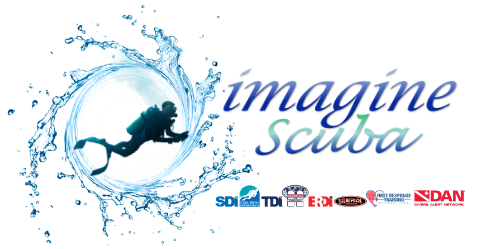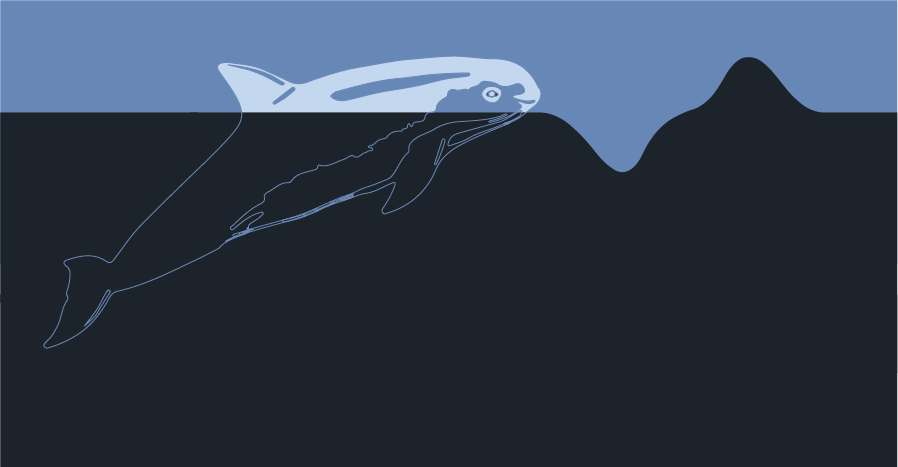With an estimated population of no more than 19, the world’s smallest marine mammal, the Vaquita, is listed by the IUCN as Critically Endangered.
The Vaquita was discovered in the 1950s and first described in 1958 in “Journal of Mammalogy” – that’s very recent, because the species has been around for over 2.5 million years.
Being a chunky little fellow, the Vaquita measures only 5 feet and weighs no more than 100 pounds. Its distinct dark rings around eyes and mouth are what inspire the name, meaning ”little cow” in Spanish.
The shy member of the porpoise family exclusively lives in the shallow waters of the northern Gulf of California, right between California and Mexico. Though most porpoises in the same category as the Vaquita (for example whales and dolphins) are very social, the Vaquita is rarely spotted in groups bigger than three.
Due to their reserved behavior, they are tough to spot. Some locals claim they have never seen one. In fact, they are so shy, not a single underwater picture of the Vaquita might exist as of now. And maybe, there never will.

Photo by Tom Jefferson. With kind-approval from Lorenzo Rojas-Bracho
An unfortunate bycatch
What continues to drive the Vaquita towards extinction is the ongoing presence of illegal gill nets in their natural habitat. And the Vaquita is not even the fishermen’s primary target. It is a fish called Totoaba, another native to the Gulf of California, and yet another species on the critically endangered list.
The Totoaba is caught illegally and smuggled out of Mexico to China, where only its dried swim bladder can reach prices as high as $50.000 on the Chinese market. For years, fishers chasing the Totoaba end up getting Vaquitas entangled and drowned in their gill nets.
Many undertakings have been initiated to try and save the Vaquita. In 2005, the Mexican government even banned the use of gill nets. Furthermore, special fishing gear has been developed, which allows the Vaquita to escape the nets aimed to catch smaller fish and shrimp.
Sadly, with little to no success.
So many Vaquitas ended up as bycatch that – only 30 years after their discovery – the Vaquita were listed as endangered in 1985 and critically endangered since 1996.
The estimated total population has declined by 98,6% since 2011. It is currently estimated that fewer than 19 Vaquitas exist. If the rate of Vaquita deaths continues as it is now, the species might be extinct in the next one to two years.
What is being done?
Many organizations aim to help save the Vaquita from extinction.
One of the main focuses remains to keep illegal gill nets away from their habitat, for example, by stopping the demand of the Totoaba. The Earth League International (ELI) is a nonprofit organization that works with intelligence collection and investigation of wildlife trafficking. They aim to create long-term change by providing information to spark concrete actions addressing the demand and market for Totoaba.
Another active organization is VaquitaCPR, a large group of scientists, veterinarians, and biologists from around the world who work with the conservation, protection, and recovery of the Vaquita. One of their goals is to maintain “vaquitas under managed care within a sanctuary facility until their wild habitat is safe” as well as to “provide an environment in which breeding could increase the population size prior to release back to the wild once all gill nets have been removed.”
Both organizations have been involved in the recent National Geography documentary film SEA OF SHADOWS. The film follows a team of dedicated scientists, high-tech conservationists, investigative journalists and courageous undercover agents as well as the Mexican Navy as they put their lives on the line to save the last remaining vaquitas and bring the vicious international crime syndicate to justice.
Create awareness and contribute!
There are many ways to help and give the tragic case of the Vaquita a voice and help tell their story.
We need to learn and raise awareness about how human interests impact the livelihood of entire species, whipping them out entirely for profit.
Together we can make a difference, and little by little, a little becomes a lot.
(c) Paralenz.com, January 15, 2020

